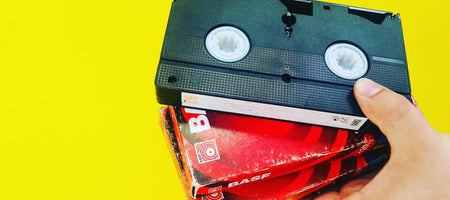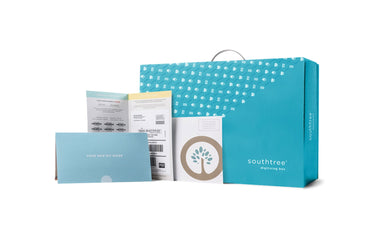Summer is right around the corner and as cold treats like ice cream, popsicles and slushies tease our taste buds, so too does dreaded brain freeze. That moment when your mind turns into a glacier from eating something cold, WAY too fast. It's a right of summer passage, an experience that all ages have likely experienced as the weather heats up and the eats cool down.
But what is brain freeze? How does it happen? And more importantly, how can you stop it?
Sphenolopalatine Ganglionerualgia
Say that five times fast! With a scientific name like that, it's no wonder it's just called a brain freeze. And while we are all quite familiar with the effect of that headache-inducting freeze, despite our best judgment to slow down, it's cause is more unfamiliar. Well, the science behind it at least.
A brain freeze happens when cold food touches the sphenopalatine ganglion (SPG), a bundle of nerves at the back of our palate. This nerve cluster is quite sensitive to cold food, and once they're stimulated, they jolt information to the brain causing that familiar freeze-inducing headache.
Brain Freeze or Migraine?
With as sensitive as the SPG is too cold, it's no wonder that this nerve bundle is also associated with other paralyzing headaches. That's right, the ganglion is also responsible for migraines and cluster headaches. Crazy, but when you think about it, it actually makes sense. A couple relief procedures for migraine suffered are through the use of numbing agent or by electronic stimulation of the SPG.
In fact, brain freeze and migraines are so connected via the SPG that some people willingly give themselves brain freeze in an attempt to break a migraine. It may not work for everyone, but the possibility to alleviate a long-lasting migraine headache for a short brain-freezing one isn't such a shabby tradeoff.
So the next time you're feeling down and out because of a migraine, try throwing back some ice cream as fast as you can - it just might do the trick.
Breaking the Ice around Brain Freeze
While there is a trick to quickly subside a brain freeze, the easiest way is to avoid it all together. That starts by slowing down how much cold food you're shoveling into your mouth. And don't inhale. Rather, keep your food in the front of your mouth because the further back it gets, the more lidkely you are to freeze your SPG.
But if you do end up finding yourself on the edge of a brain freeze, stay focused and press your tongue to the roof of your mouth. The heat will help neutralize the cold by warming up the sinuses and the ganglion.
The good news is that the brain freezes, while painful, aren't dangerous. Whew! You didn't accidentally cause long-term brain damage to yourself as a kid. So, don't worry! You're not going to die from a brain freeze, but it may temporarily paralyze you.
So this summer, before you chow down on that double scoop of vanilla cone, remind yourself to slow down. Your brain will thank you for it.













